Things You Should Never Put in the Garbage Disposal
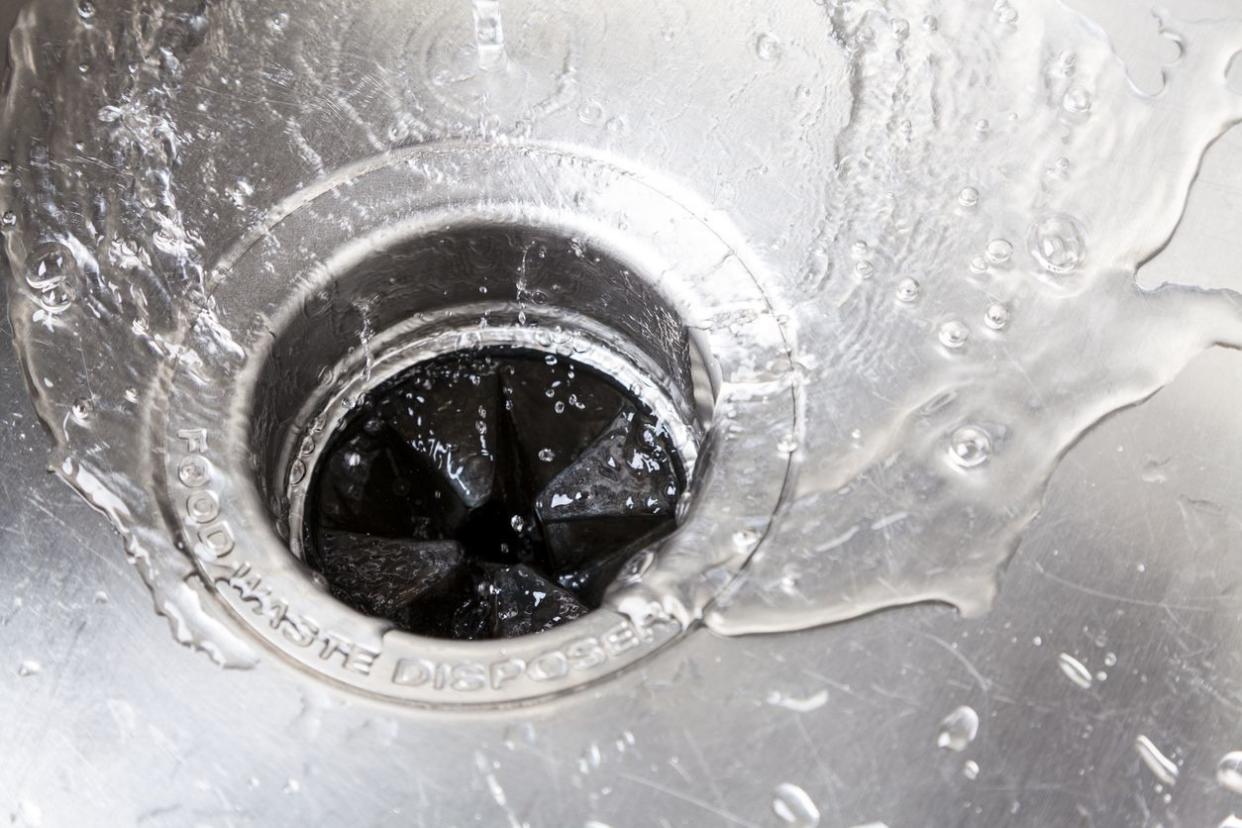
The garbage disposal feels like the perfect solution to leftovers causing a stink in the kitchen, but hold up. Plumbers list the worst items to put down the disposal because they're the best items to start a clog. Here's what you need to know about using your garbage disposal.
Related: 16 Easy Ways to Prevent Pricey Plumbing Problems
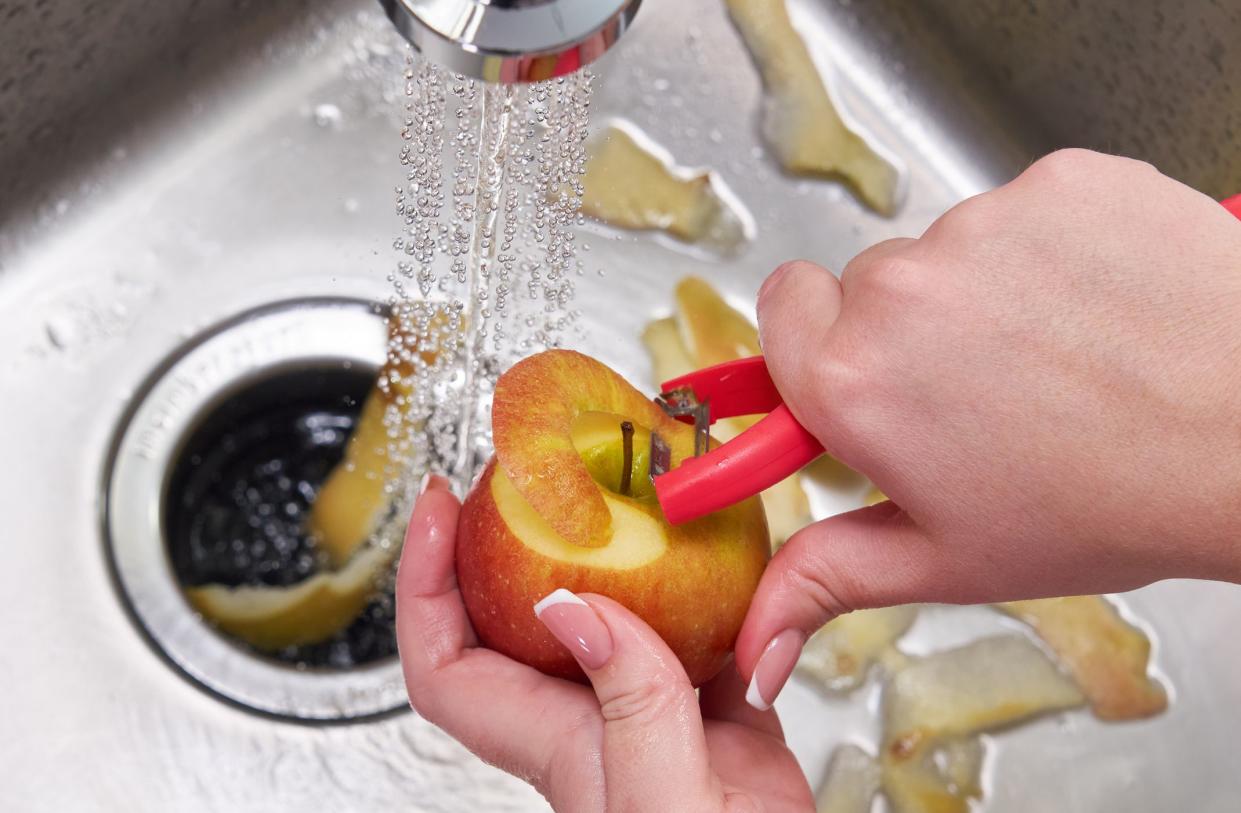
The first rule of garbage disposals is they shouldn't be used for garbage at all. "The garbage disposal is going to grind anything you put in it, but you should never intentionally put something in the garbage disposal," said Levi Torres, owner of High-5 Plumbing in Denver.
Related: Cleaning Myths That Will Ruin Your Things
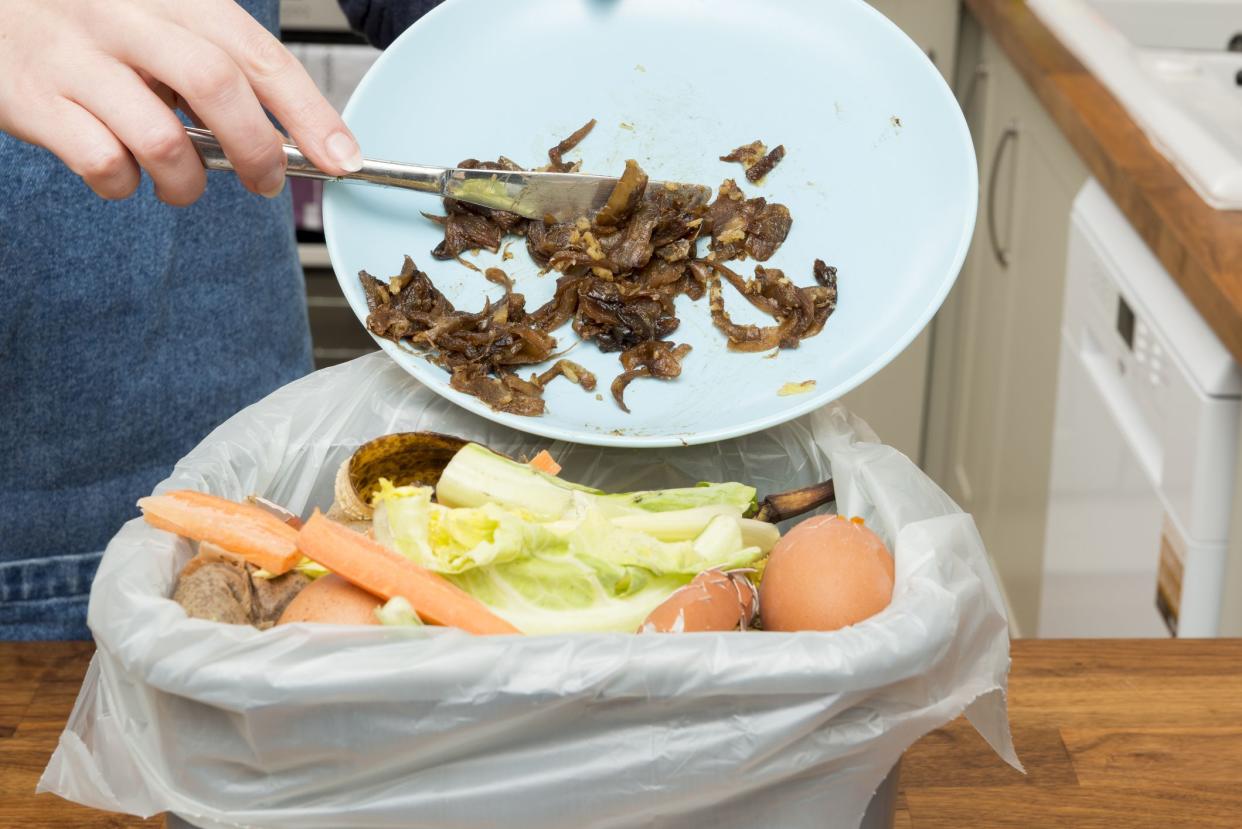
The disposal is not designed for the kids' unfinished dinner or the vegetable scraps on your cutting board after making a salad. Instead, scrape plates, bowls, pans, and cutting boards into the garbage or the compost.
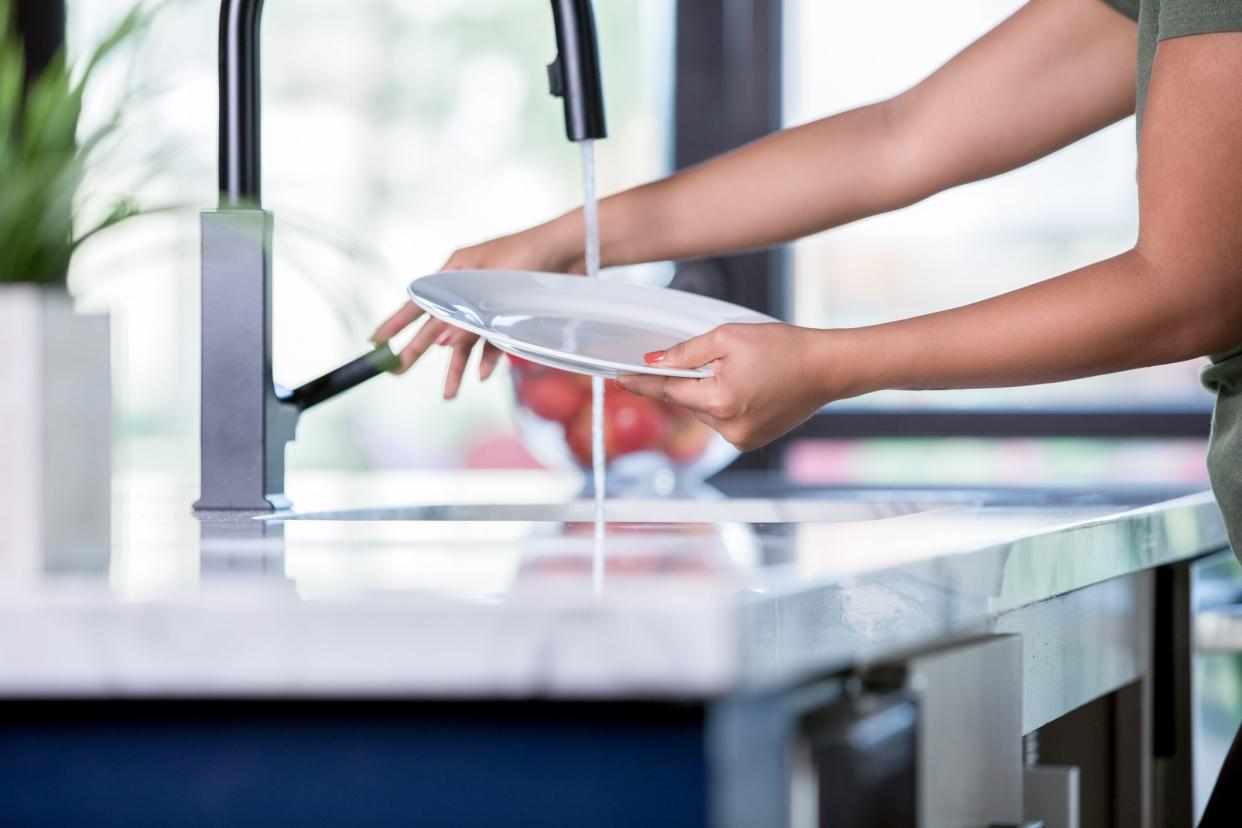
No food should intentionally be left for the disposal to handle, Torres said. "You should never be putting eggshells or peelings or rice or lettuce or ice cubes. None of that stuff should be going in your garbage disposal." Once plates are scraped, you can rinse what's left.
For more great home tips, please sign up for our free newsletters.
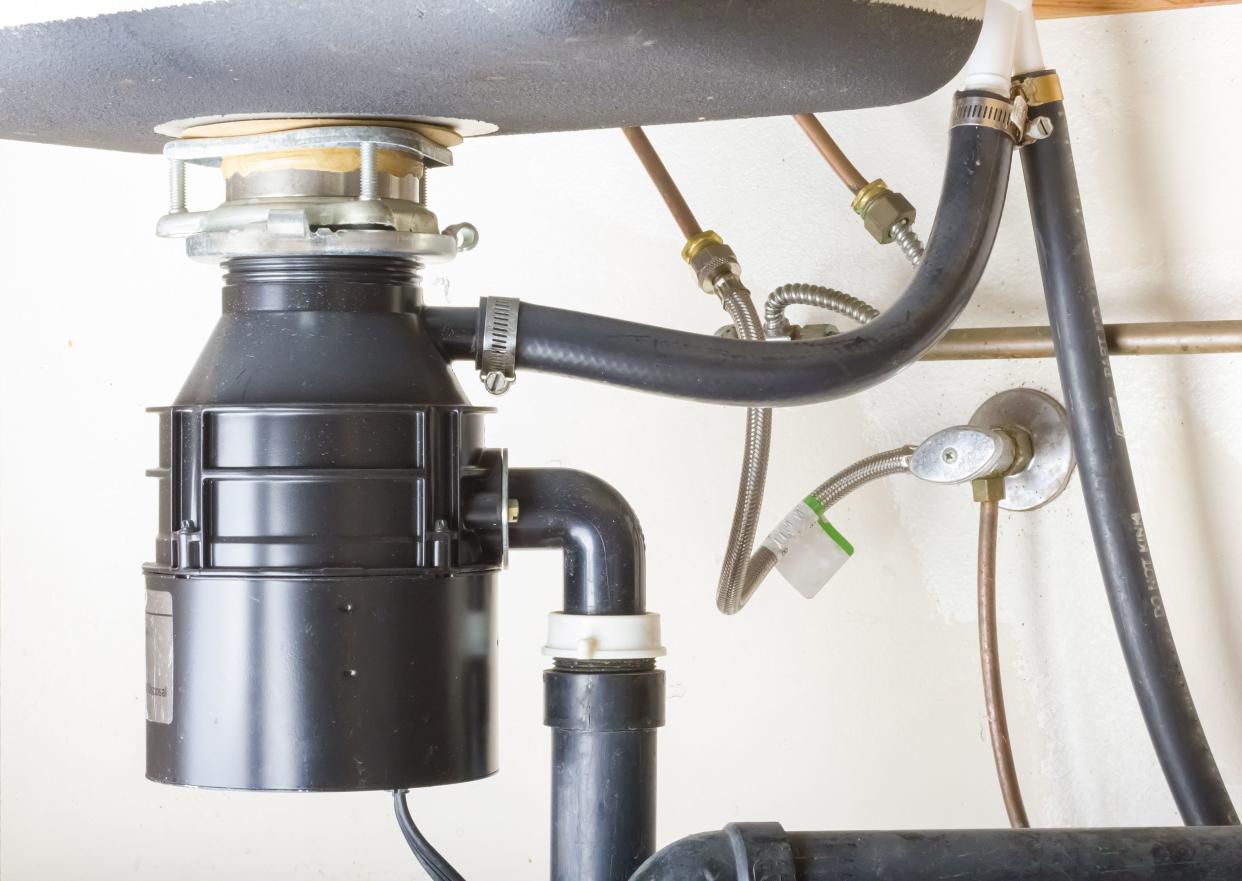
You might be surprised to know there's no blender-like blade in the disposal. Garbage disposals have a metal cylinder that spins and forces food particles along a stationary grind plate where it gets broken up. From there, water flushes the particles out through the wastewater pipe. But it can't break everything up.
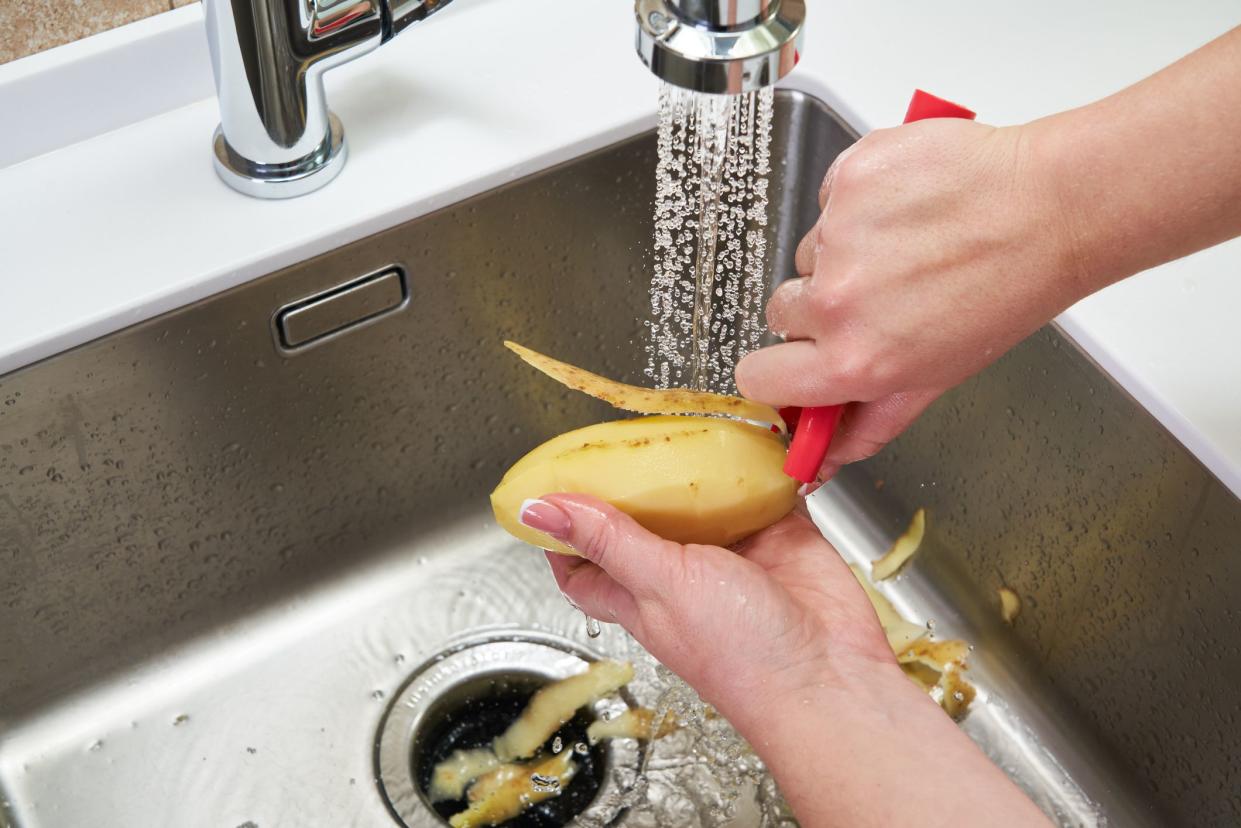
"Peels are bad," said Max Rose, co-owner of Four Seasons Plumbing in Asheville, North Carolina. "They just knot up." Fibrous peels like those from carrots, potatoes, and pumpkin have caused their fair share of kitchen sink backups. "Those should definitely not go in the disposer."
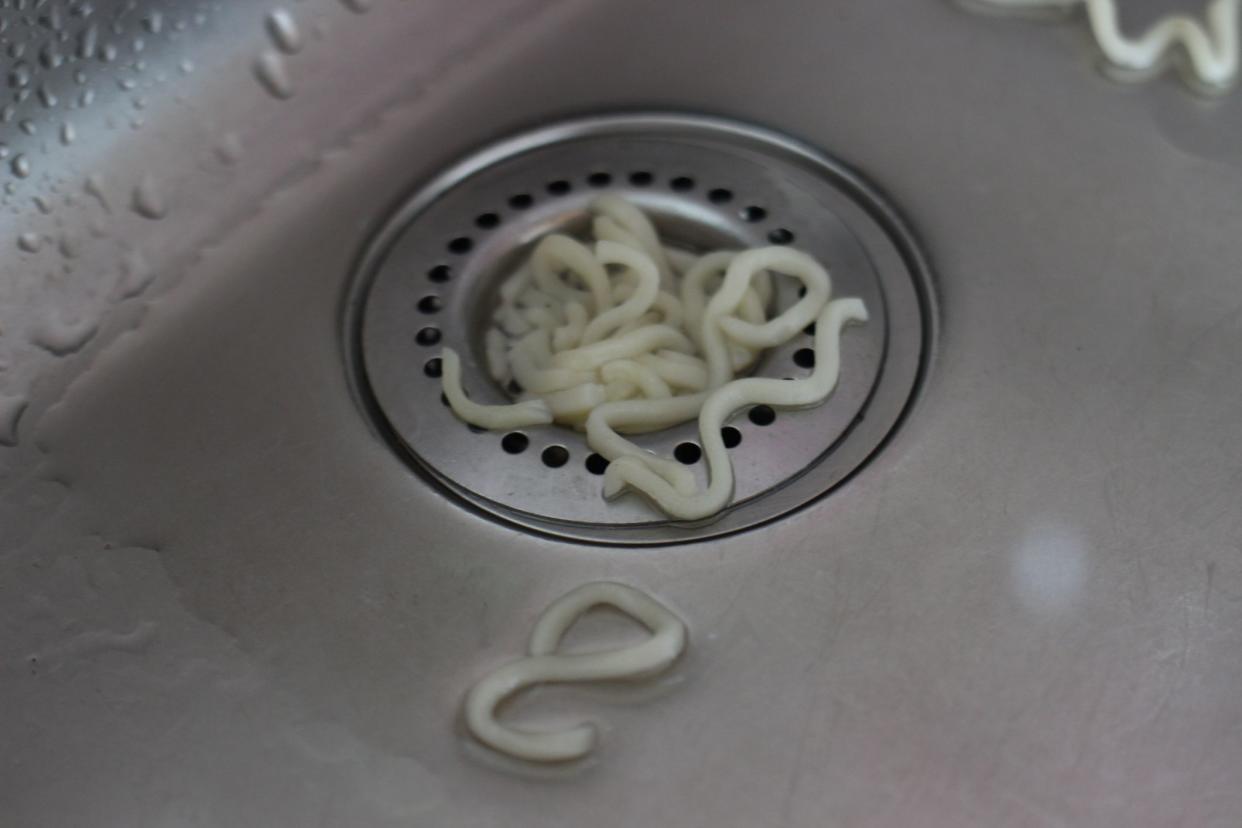
Do whatever you want in your diet, but keep glutenous pasta, soft potatoes, sticky rice, and gummy oatmeal out of your garbage disposal. Grain products will absorb water and expand, making an effective material for clogging pipes. "They turn into a glob of dough, those are the nastiest drain blockages you can imagine," said Matt O'Rourke, president of Z Plumberz.
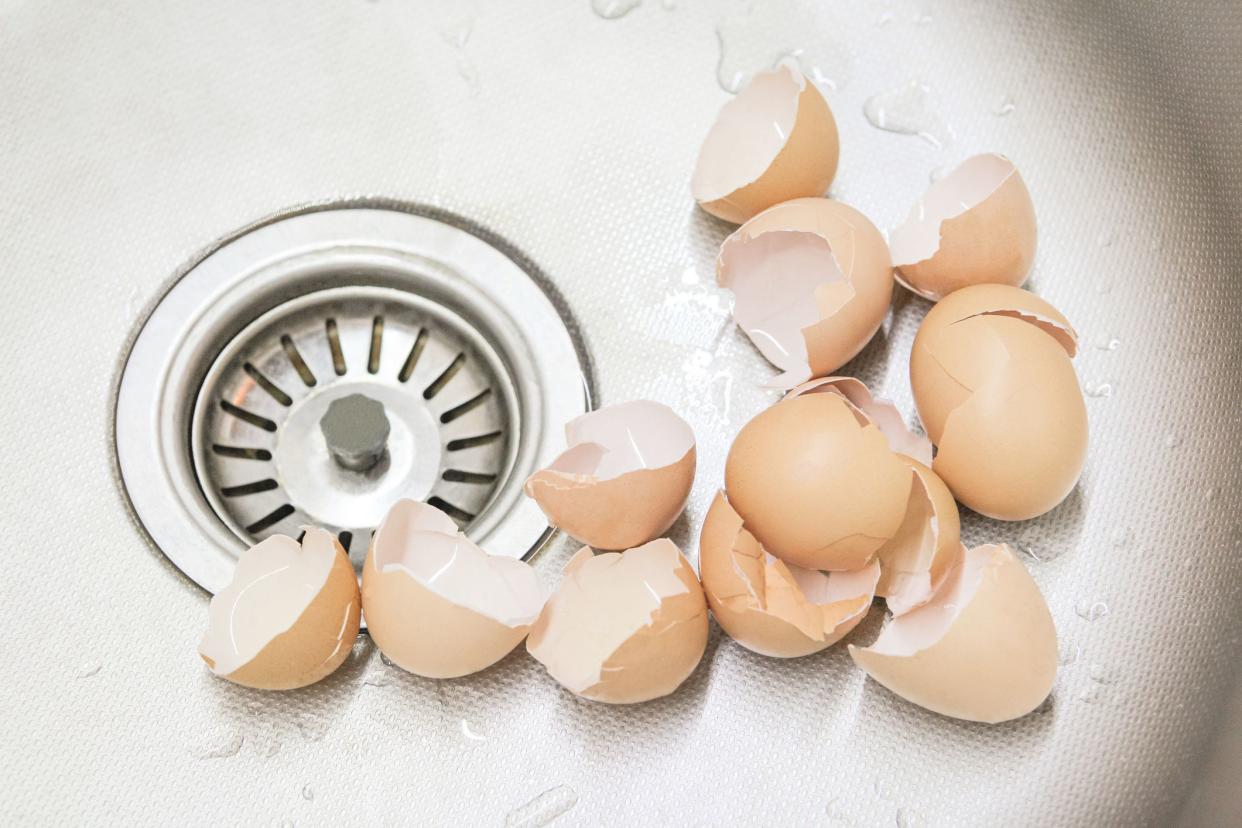
There's another myth circulating that says egg shells sharpen disposal blades. But egg shells are better used as compost material. "They're heavier than the water, so they just sink to the bottom," O'Rourke said. That means egg shells could just sit in the disposal or the pipes.
Related: 32 Ways You're Ruining Your Home and Don't Even Know It
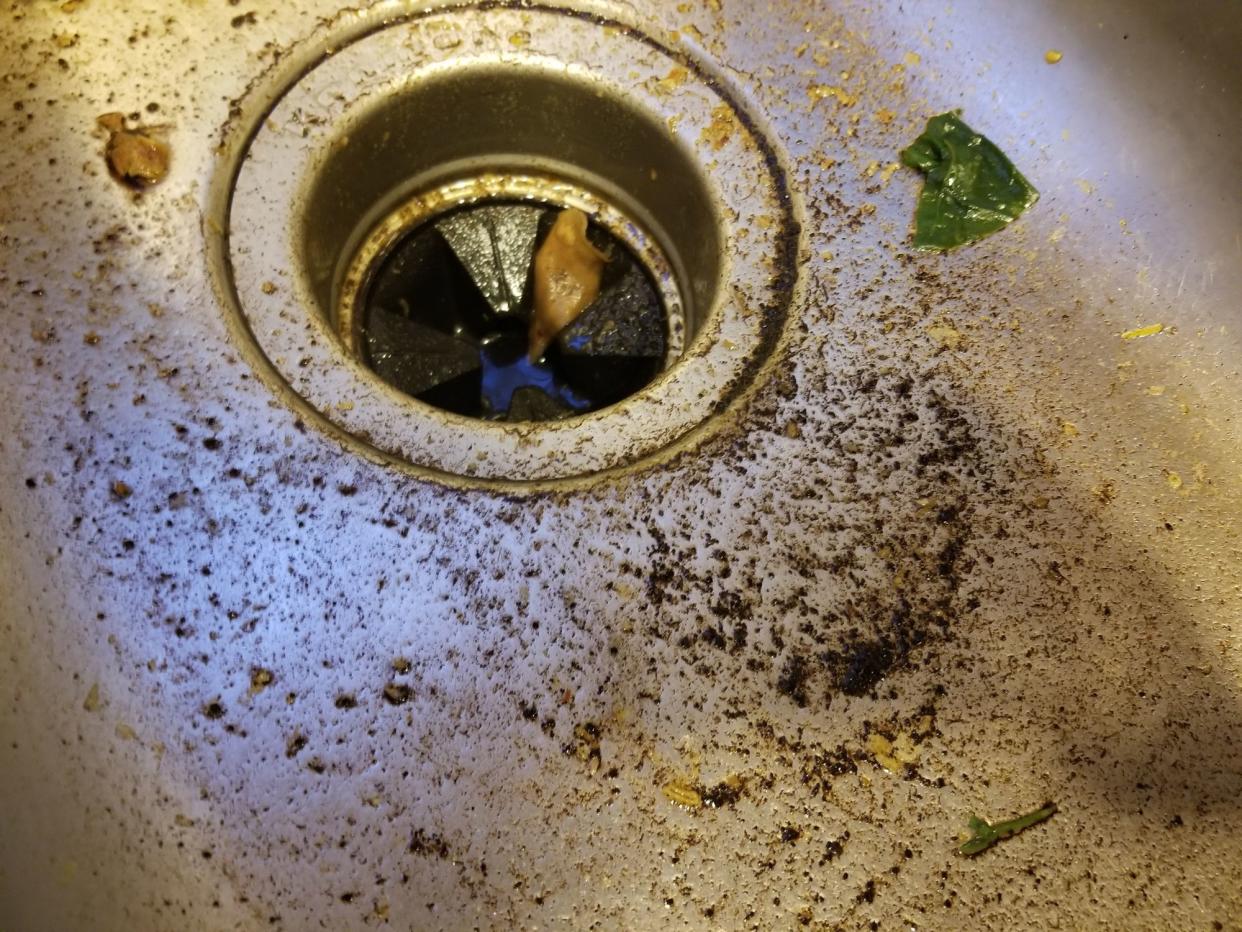
Some home gurus suggest putting coffee grounds down the disposal to eliminate odors, but don't. The garbage disposal doesn't need any caffeine. Like egg shells, coffee grounds are heavier than water and will settle at the bottom, causing clogs in the process. They can go in the garbage or compost.
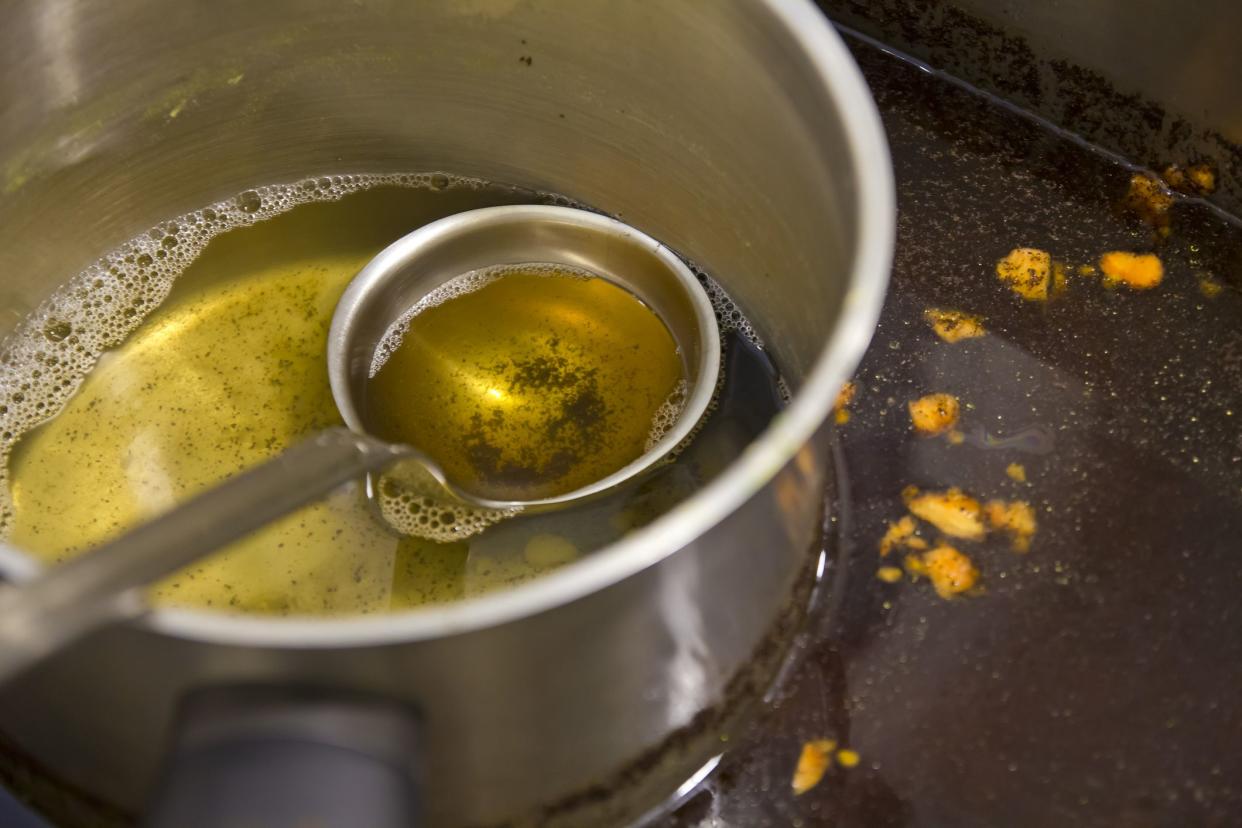
When they're hot, fats, oils, and grease run through the drain, but once they start to cool, they harden along the walls of the pipes, reducing the water flow. Best bet is to keep them out of the drain. You might be able to reuse cooking oil.
Related: The Worst Home Maintenance Mistakes You Can Make
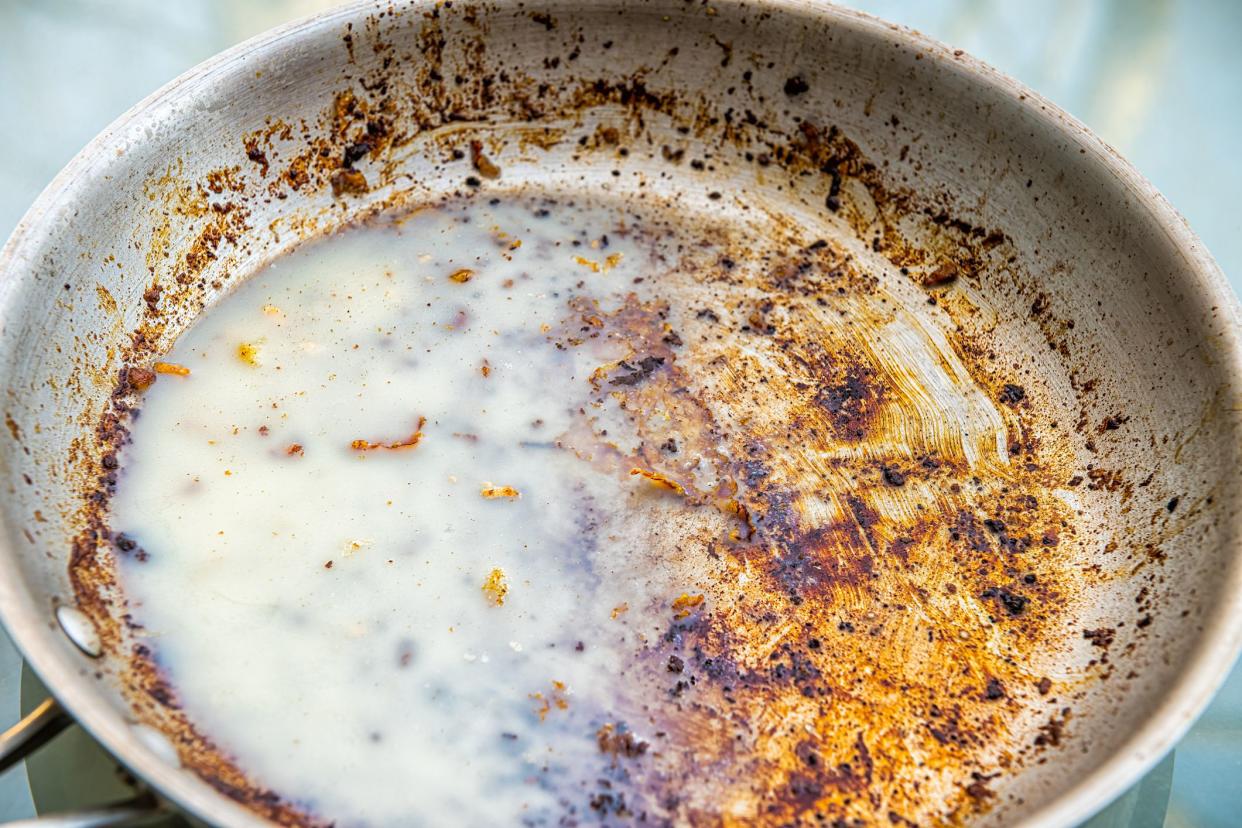
Cooking grease causes headaches for homeowners, plumbers, and the city. When it hardens, it starts a clog, and eventually the water backs up. Let the grease cool then scrape it out of the pan and into your compost or drain it into an old can and toss it when it's full. Using an enzyme-cleaning product can help break up any grease in the pipes.
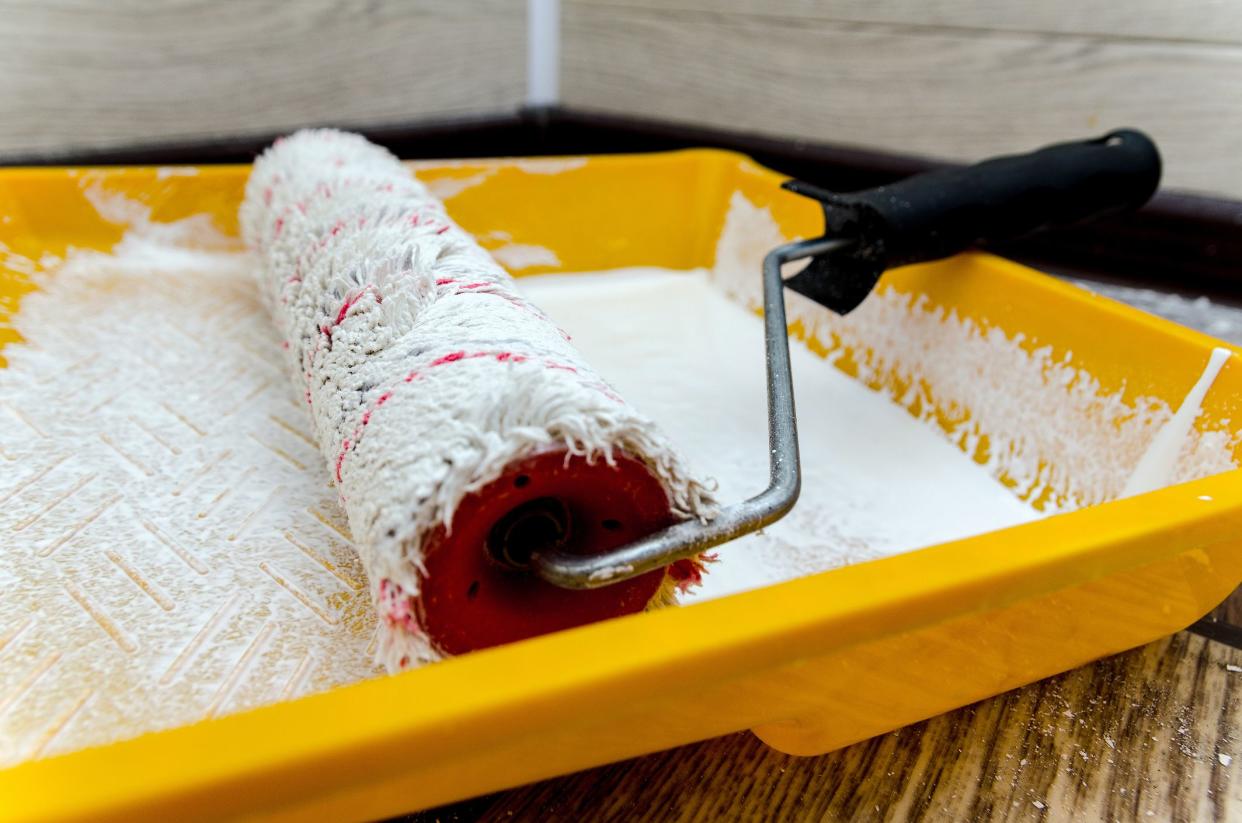
You've just painted, and the house looks great. But what to do with the leftover paint? Definitely don't pour it into the disposal or any drain. Paint, grout, and anything latex should be properly recycled. Anything that forms a skin will cure in the drain. If it turns into a solid at room temperature or when exposed to air, it shouldn't go down the drain.
Related: 13 Steps to Painting a Room Like a Pro
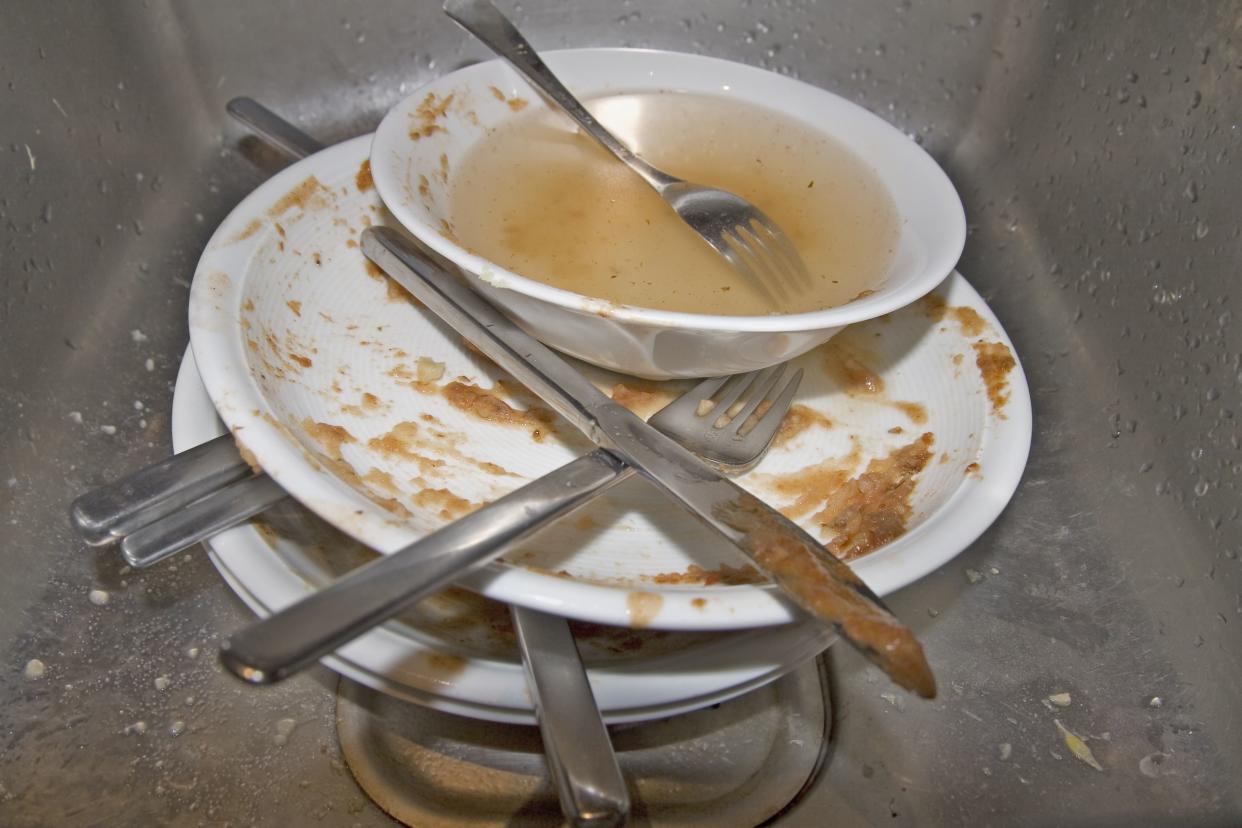
First, anything that goes down the sink drain should be biodegradable. Then ask yourself if a cheese grater could break the item up. "The things that can go down are the ones that will break down and aren't heavier than the water," O'Rourke said. When items are heavier than water, they don't flow easily through the plumbing. Instead, they sink to the bottom of pipes and can start a back-up. It's okay to rinse crumbs and soft foods like sauces and fruits off plates and into the disposal.
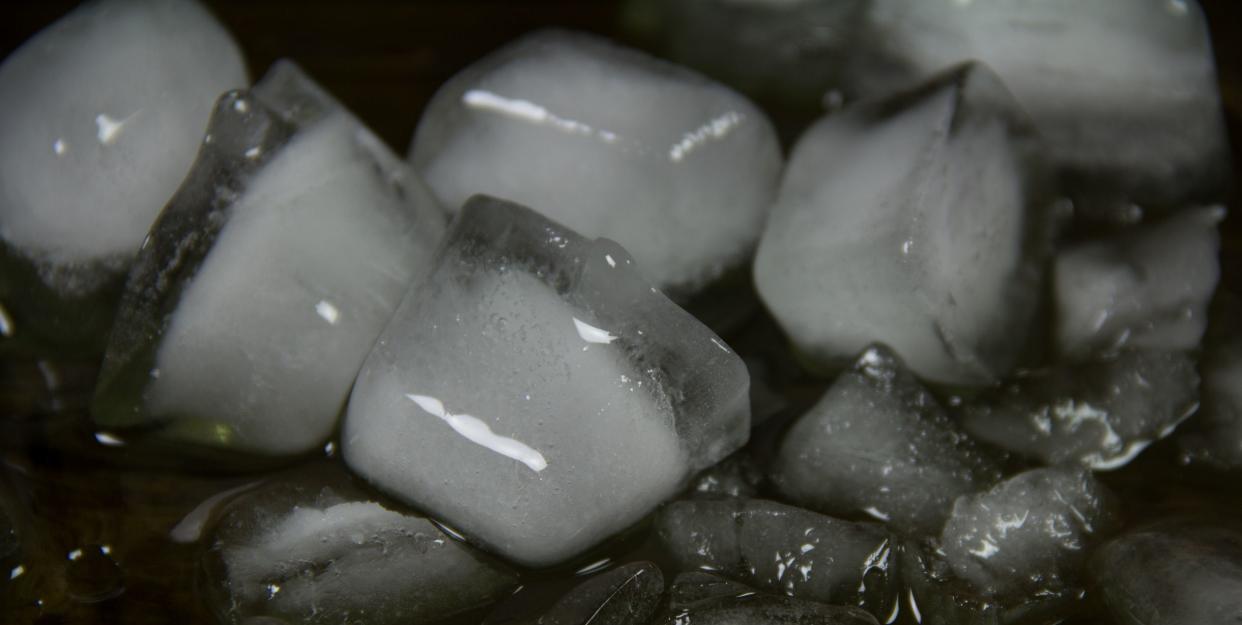
There's a myth that putting ice in the garbage disposal sharpens the blades. Not true. It won't sharpen the blades, but a couple ice cubes in the disposal can help knock out any debris in the grinding mechanism.
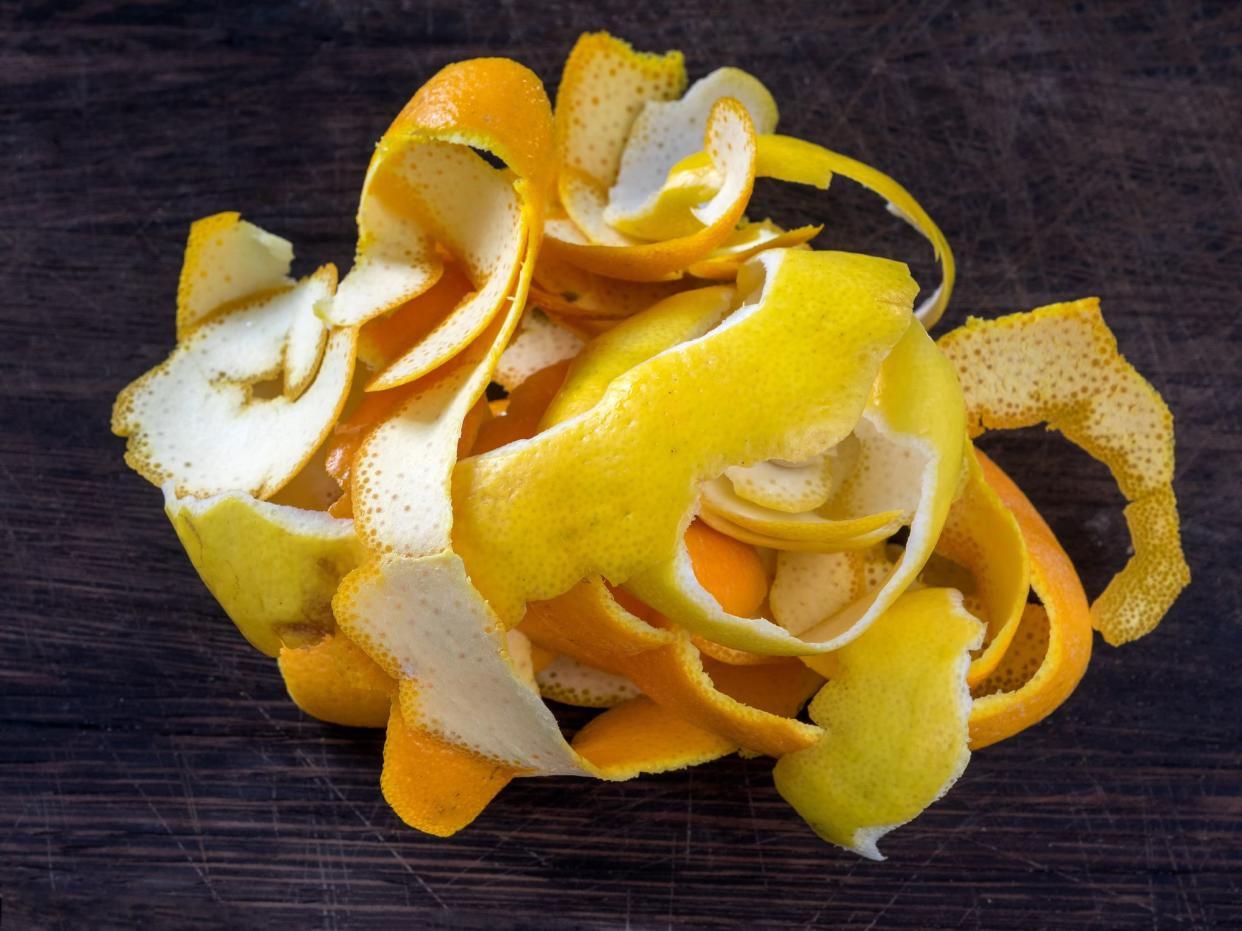
There are two schools of thought on this. Orange and lemon peels in the disposal can give it a fresh smell and grind up easily. But they also add unnecessary wear and tear to your disposal. The choice is yours.
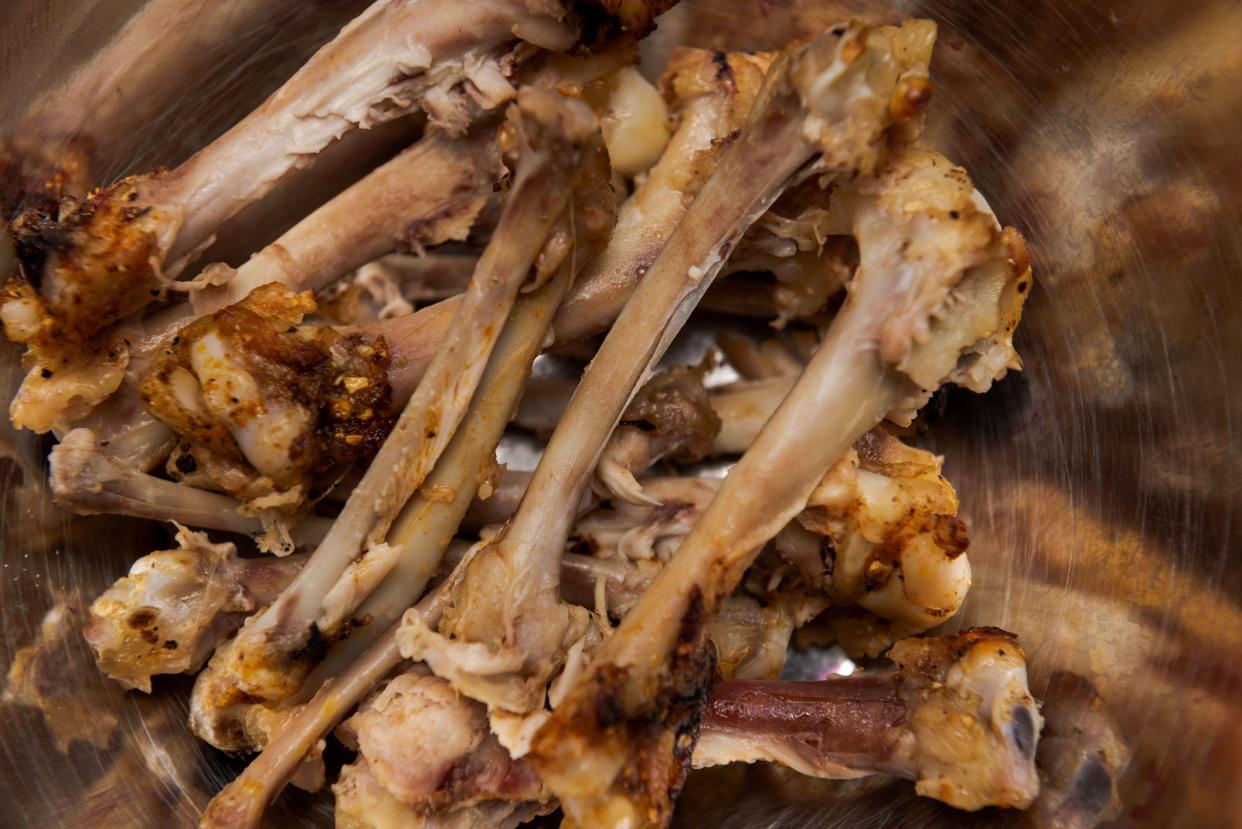
Your garbage disposal will break up bones, but ideally, they'd go in the compost. Garbage disposals have to work hard to grind them up into pieces small enough to flow through the water system. Give the machine a break and use the compost or trash instead, but don't fret if a small piece goes down the drain.
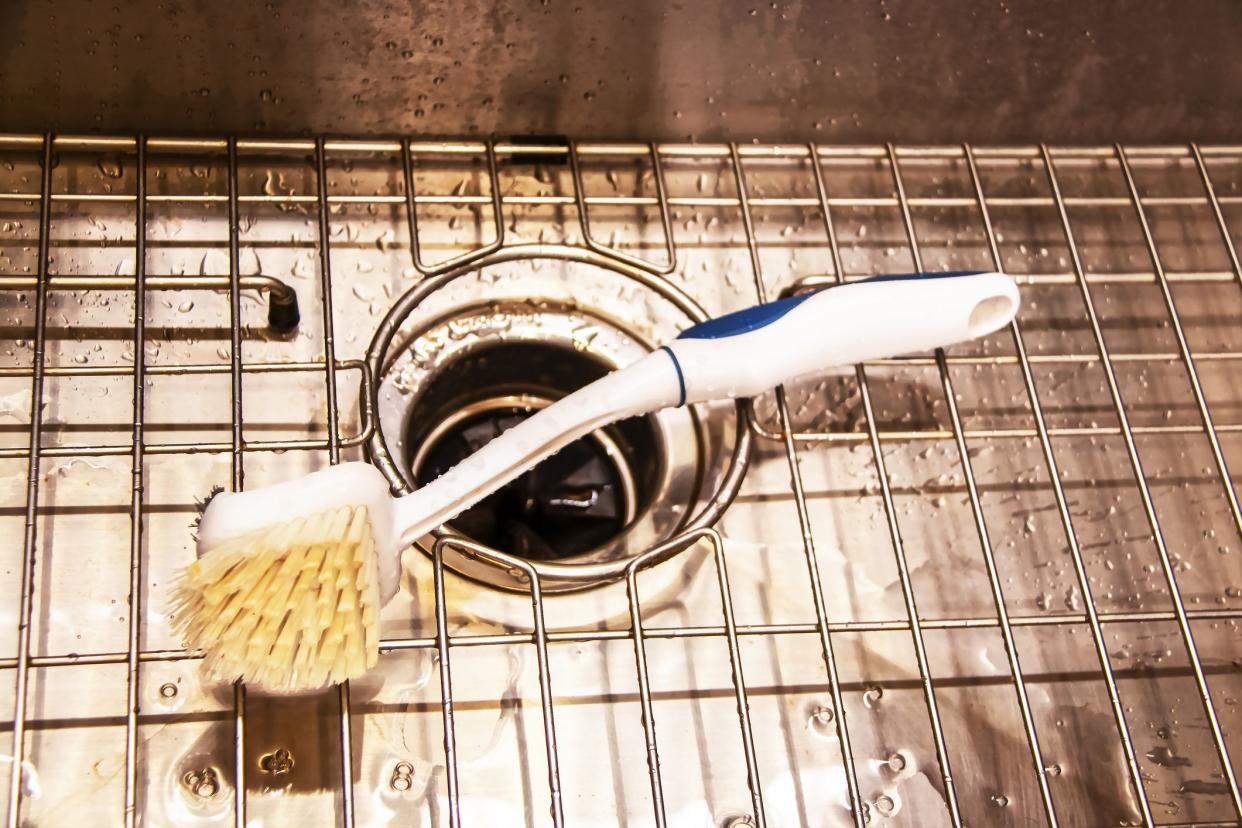
If your disposal starts to stink, which it inevitably will, clean it. Remove the rubber splash guard that fits down in the disposal and clean it off or run it through the dishwasher, Rose suggested. "It gets nasty underneath and causes smells."
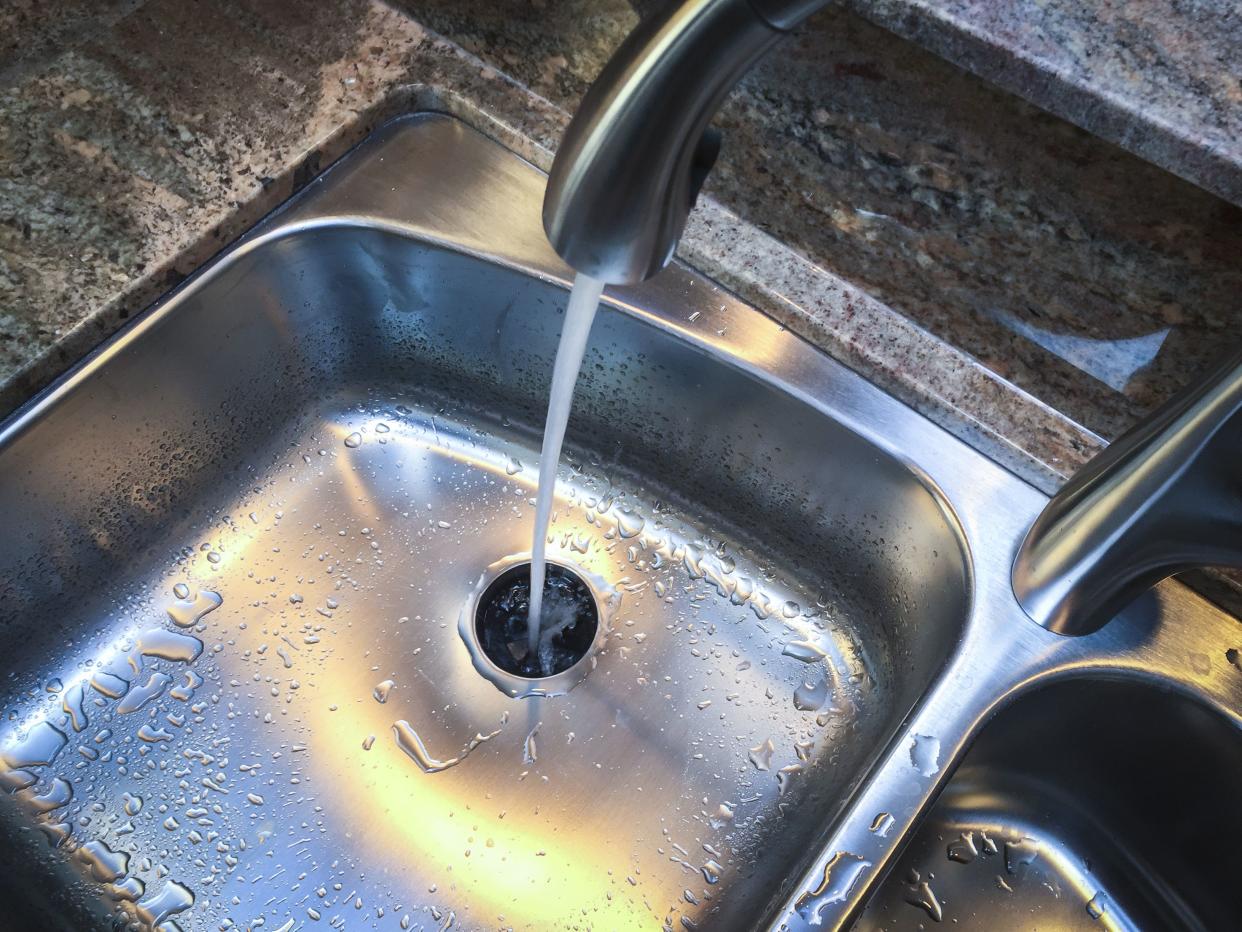
The easiest way to maintain the disposal is to run water through it. Run some water after running the dishwasher because that runs through the disposal as well. When cleaning the sink, turn on the water and flip on the disposal for a few seconds.
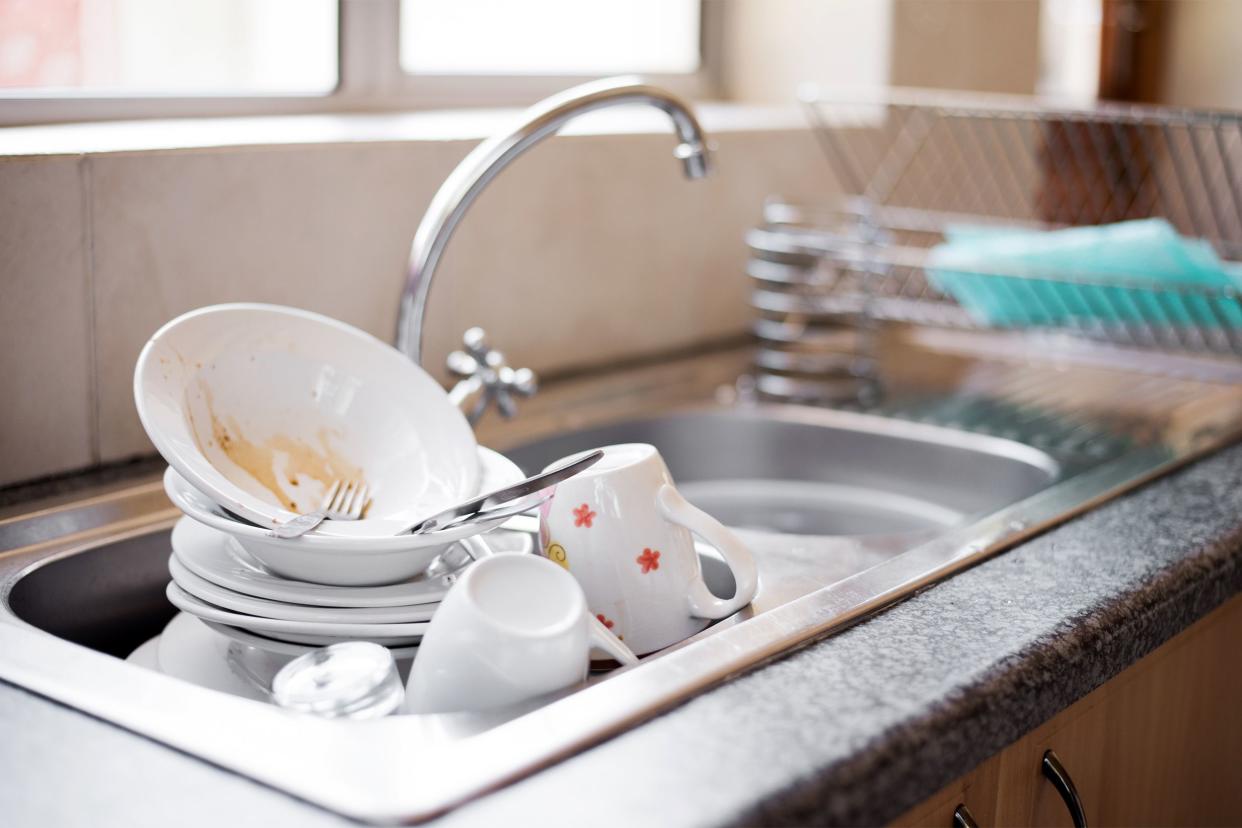
Backups often happen after big cooking days like Thanksgiving or Super Bowl parties when more food goes down the disposal and the dishwasher runs more frequently, O'Rourke said. Try to space out use to give all the gunk a chance to clear. For example, save the second load of dishes for the next morning.
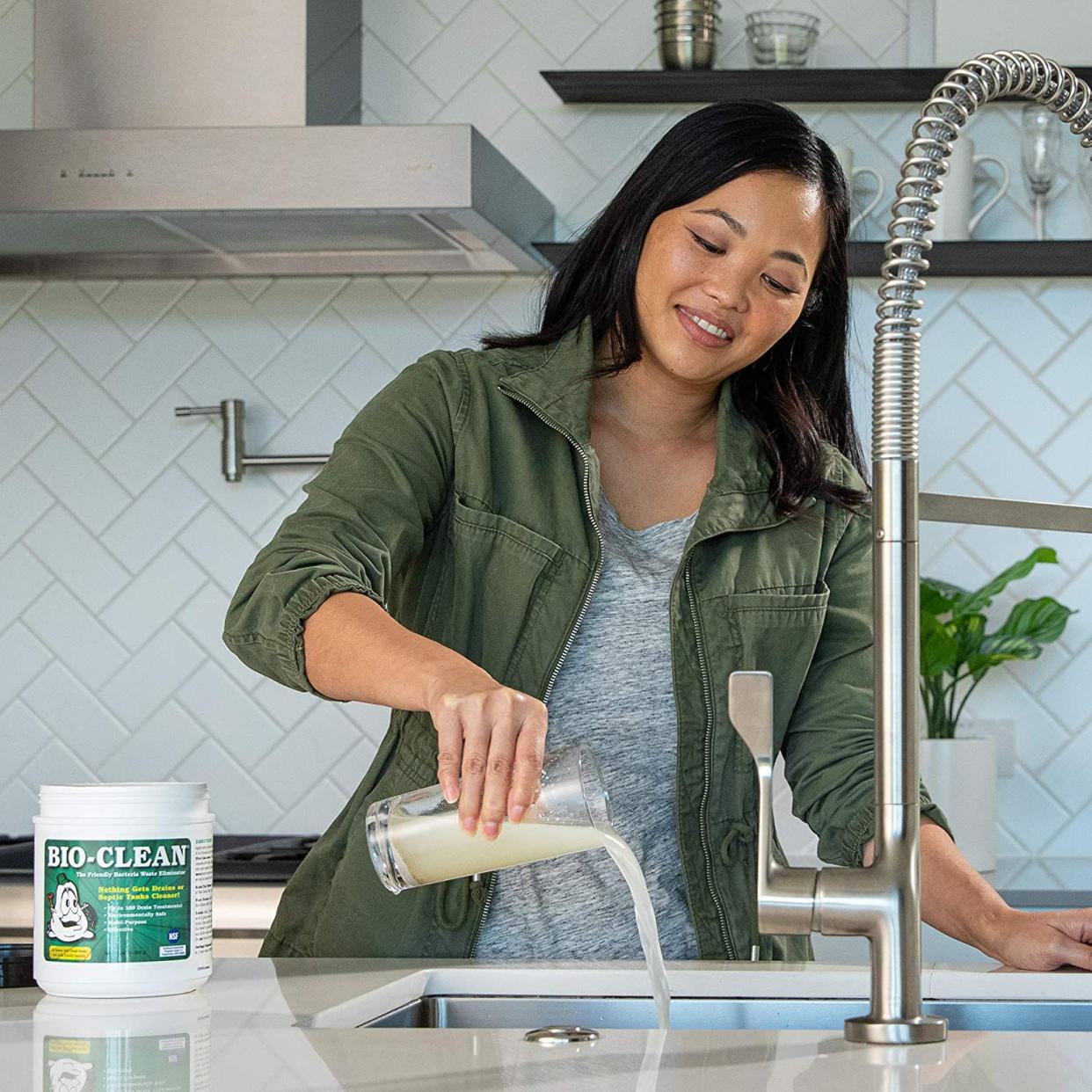
You can also find environmentally friendly cleaning tablets at discount and hardware stores. Just look for one that uses enzymes rather than harsh ingredients that can cause skin irritation and damage to the environment. Enzymes help break up grease and other biodegradable materials. Torres said he uses Bio-Clean in his own drains as monthly maintenance.
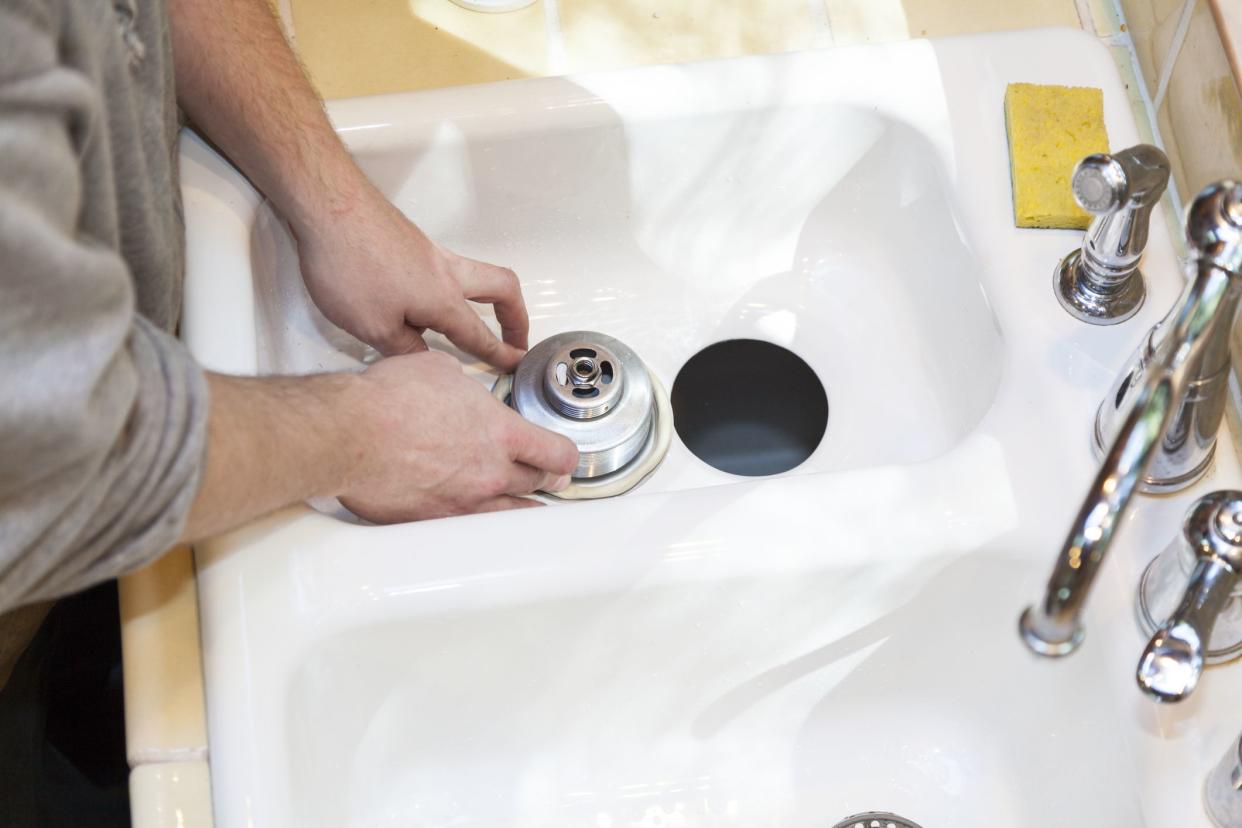
When buying a new disposal, look for one made of stainless steel that reverses direction. Rose said the step up from the base model disposal is worth it because it breaks up gunk much better. "I would never put one of those things in my house after knowing what I know," he said. "It's so much quieter, too."
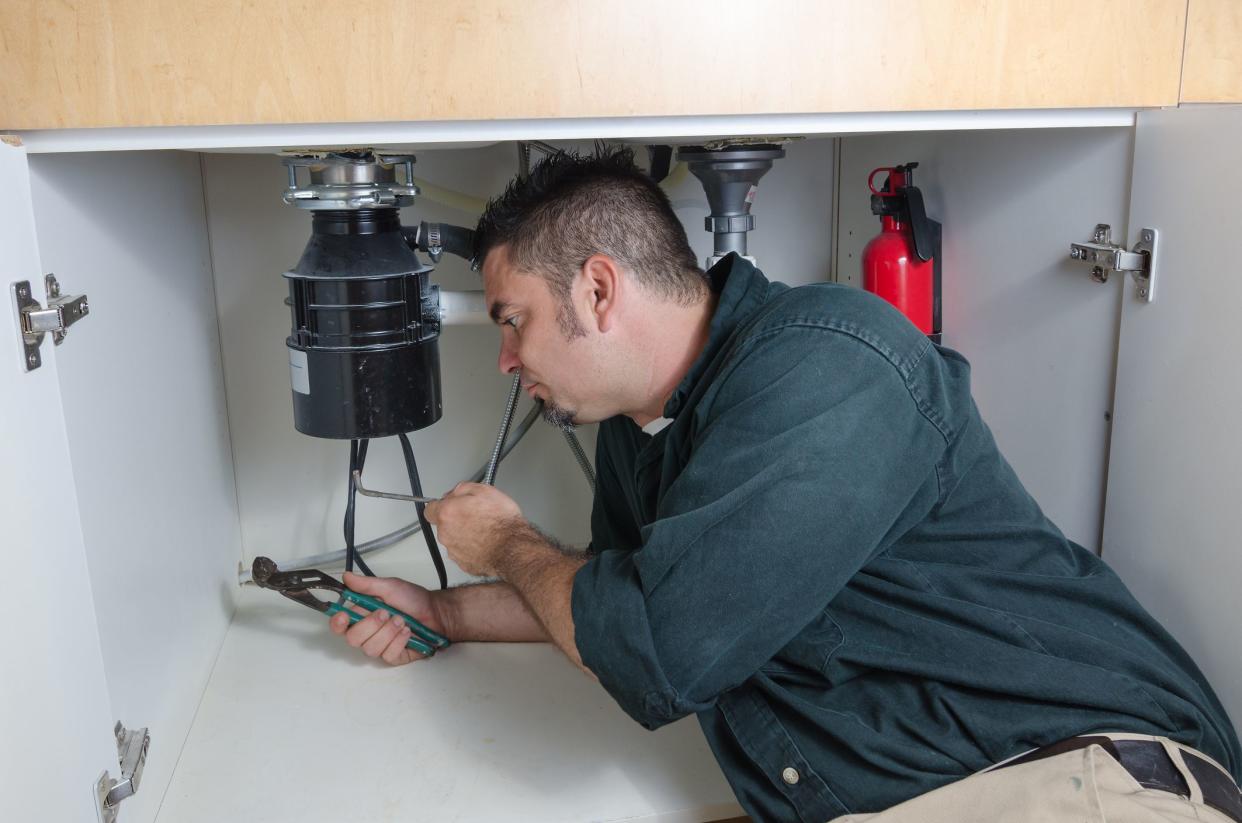
The disposal has GFCI protection, like bathroom outlets. It will trip if it gets jammed and starts to overheat. So, check underneath the disposal unit for a red button. If it's tripped, leave it off while you use the wrench that came with the disposal to manually turn the assembly from the bottom. Keep the power off while you remove whatever was jammed in there. If you're at all uneasy about doing the work, call a plumber to handle it for you.
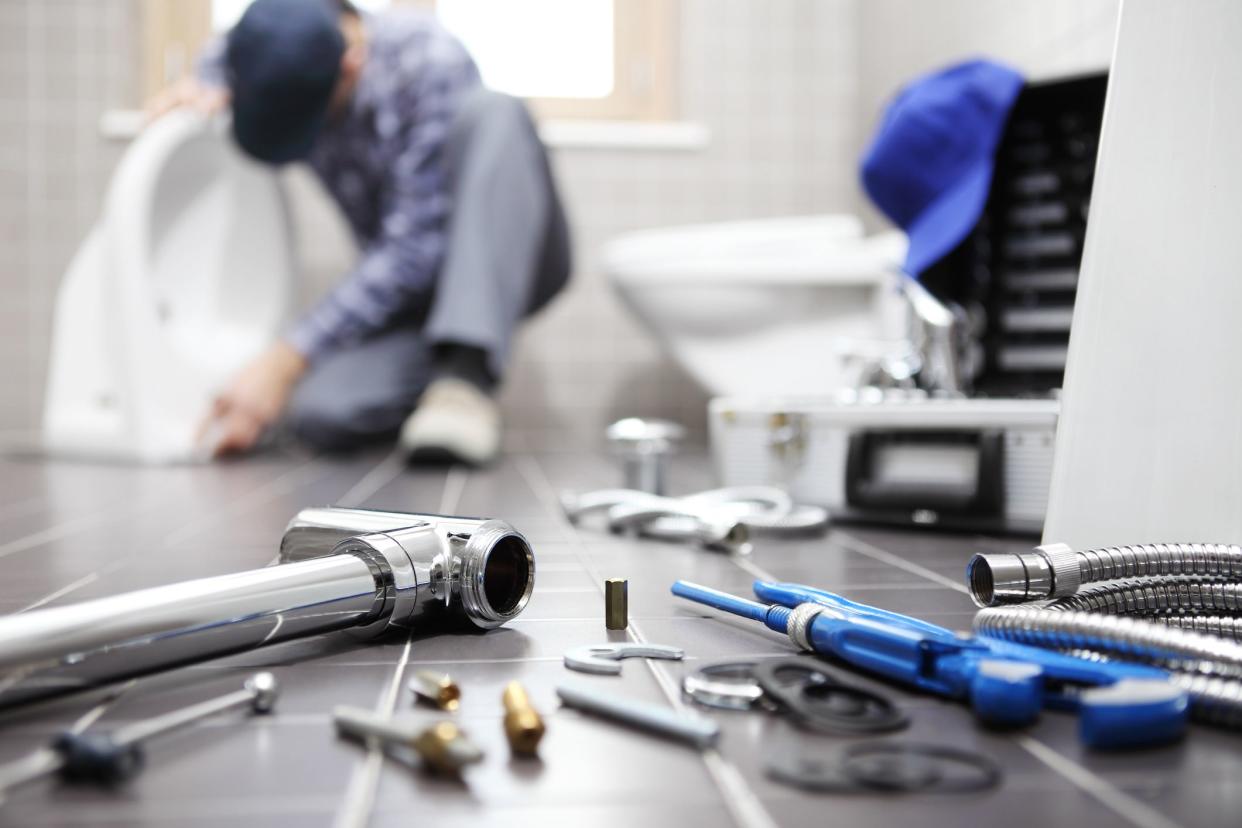
Like Cheapism's content? Be sure to follow us.
